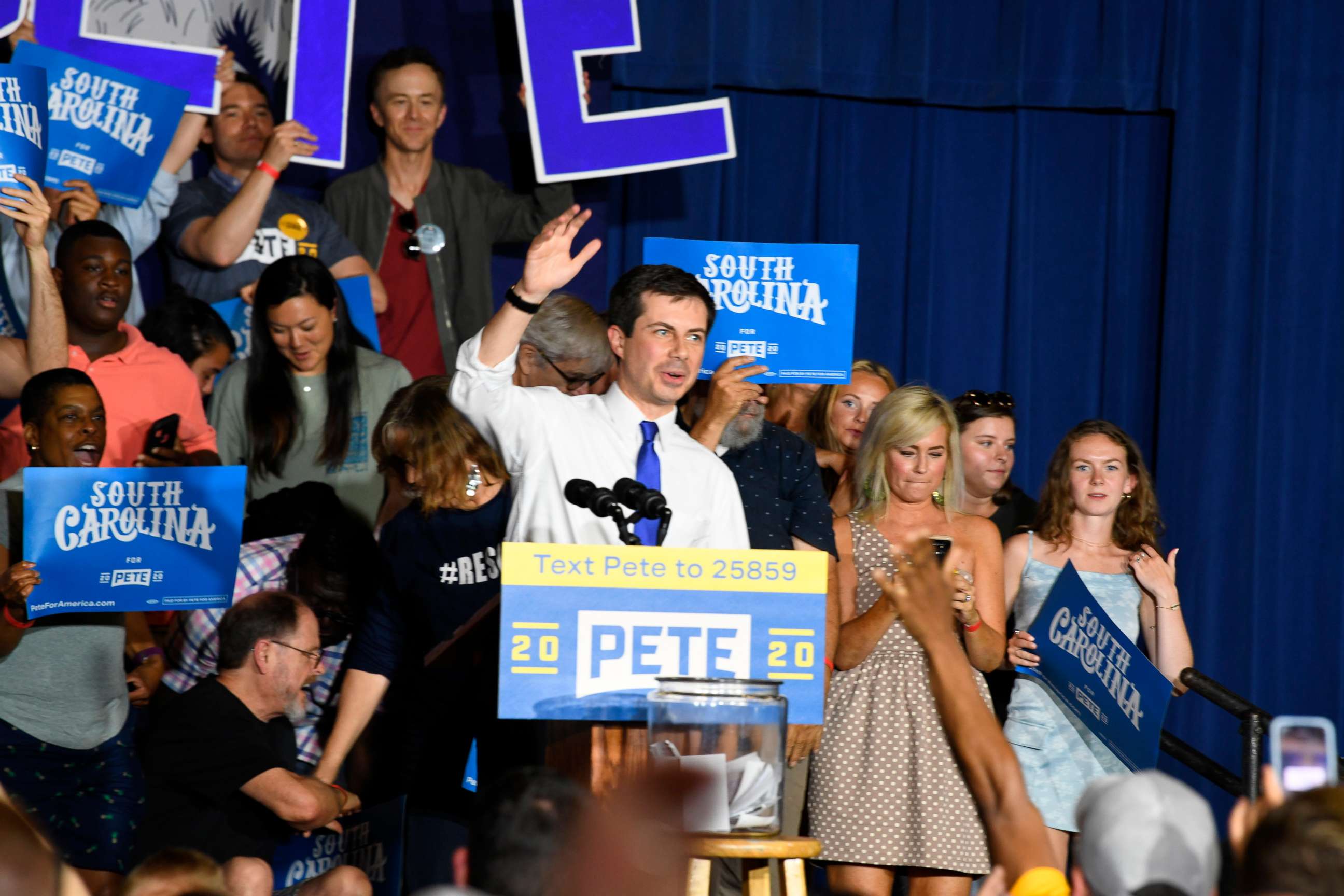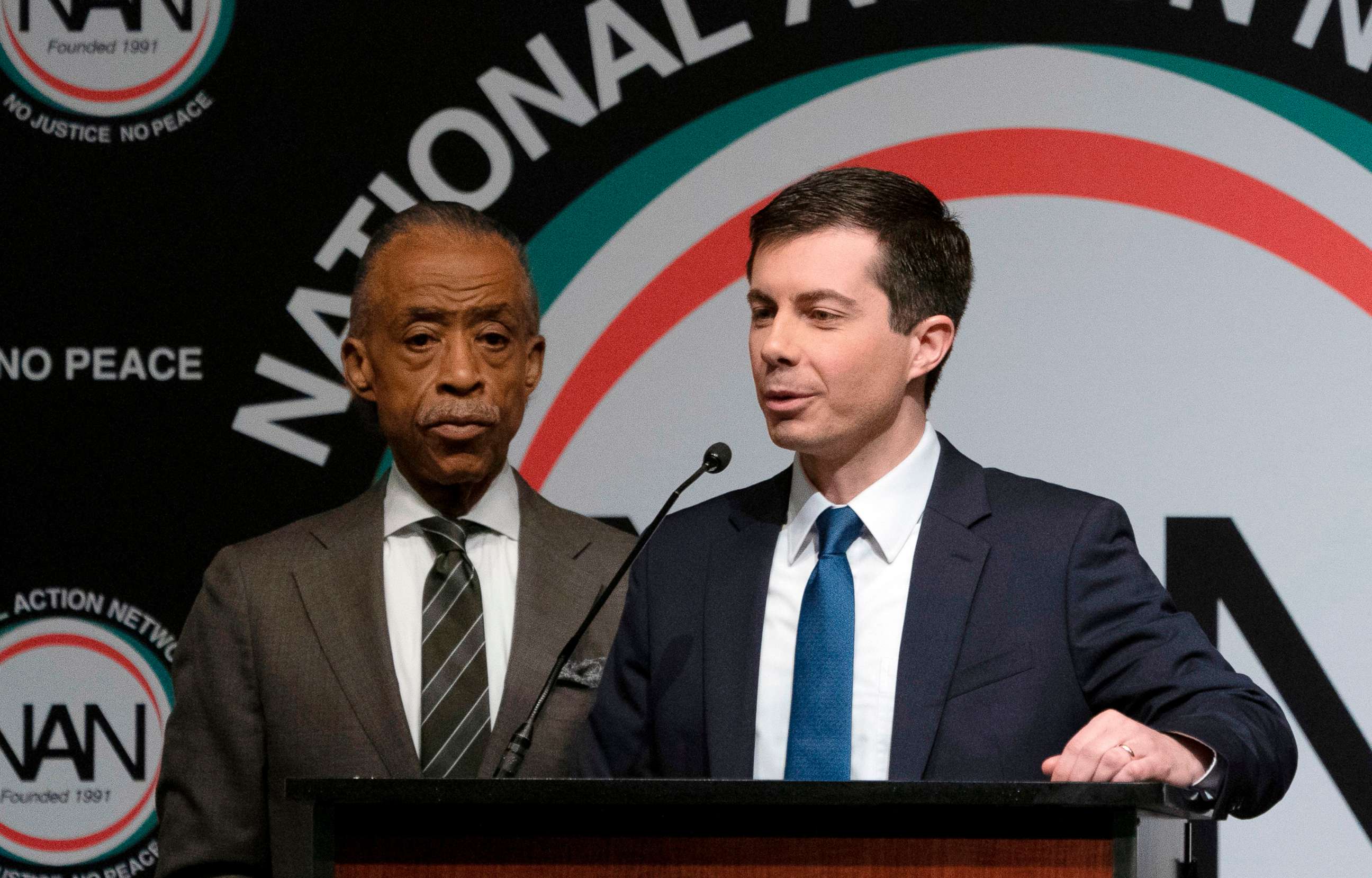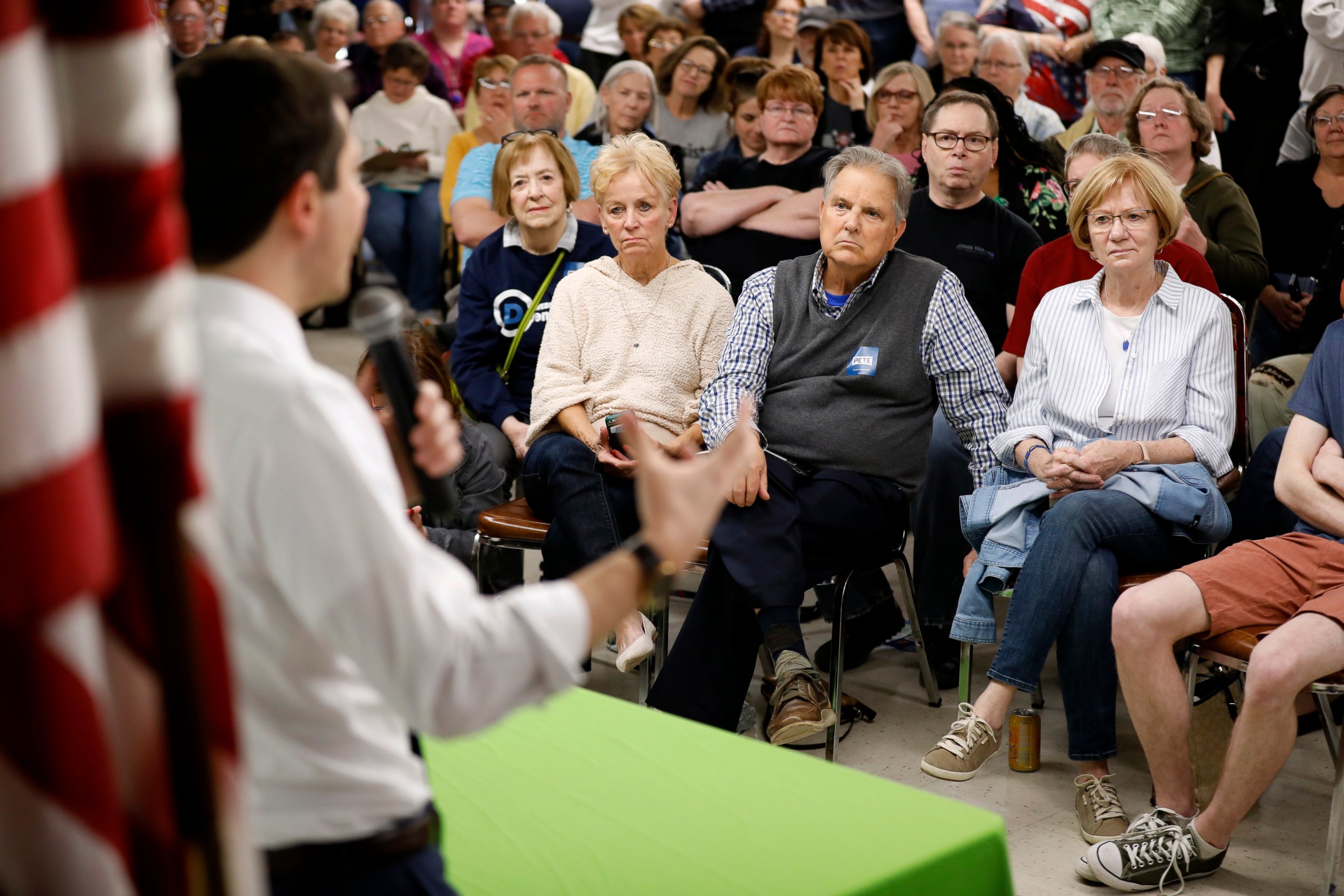Mayor Pete Buttigieg asks for help diversifying his base
He recently asked a mostly white crowd if they could help tackle the issue.
At a high school in North Charleston, South Carolina, Democratic presidential candidate Pete Buttigieg made an unusual pitch to voters. He asked the mostly white crowd of 600 people if they could tackle an issue his campaign is facing when it comes to diversity.
Buttigieg, the mayor of South Bend, Indiana, saw the lack of diversity in the crowd as an opportunity to frankly admit that he had a problem with diversity.
"I also need your help shaping the base of supporters we are building to not only help this campaign but to also shape it," he said. "To find people who perhaps do not look like you."
Buttigieg's crowd was a far cry from the racial demographics of the community and nowhere near the key electorate that he would almost certainly need in order to secure a win in the state.
In South Carolina, African Americans consist of nearly 30% of the population and vote overwhelmingly in favor of Democrats. The Palmetto State is also home to the first in the South primary.
And it is a state that can either make or break a campaign such as then-Senator Barack Obama in 2008, or provide a surprise win such as Rev. Jesse Jackson's 1988 caucus surprise.
In North Charleston, African-Americans make up roughly 47% of the population whereas Whites are 45%.

During the North Charleston speech, "he admitted he was having trouble reaching black voters. And he said I need help. We're running out of time, buddy, you don't go 17 months before the campaign trail is littered with people who, recognize too late, who the most valuable voters in the coalition are," Aimee Allison founder of She The People told ABC News.
In recent months Buttigieg has made several efforts to reach out to black voters.
He's held an event at South Carolina State University, a historically black college founded in 1896, appeared on The Breakfast Club, a nationally syndicated hip-hop radio show hosted by three African-American hosts Angela Yee, DJ Envy and Charleston native Charlamagne Tha God. And he sat down for lunch with civil rights leader Al Sharpton.
But Buttigieg's still struggled to make inroads with African Americans.
Buttigieg's problems connecting with diverse groups aren't new. Earlier this year he dealt with questions following his 2015 remarks that "All Lives Matter." The term "All Lives Mater" has been seen by critics as a catchphrase aimed at minimizing the "Black Lives Matter" movement -- a grassroots effort centered around the perceived violence and systematic racism of African American's by police.
On stage, Buttigieg declared that he'd stopped using the phrase "All Lives Matter" and on stage declared that Black Lives Matter at Sharpton's National Action Network Convention. Offstage, Buttigieg told reporters he didn't understand that the phrase was "viewed as a sort of counter slogan to Black Lives Matter."

Policing is a problem that has dogged Buttigieg's time in South Bend, shortly after his election he demoted the city's first African American police Chief Daryl Boykins. The mayor demoted Boykins after the FBI told Buttigieg that they were investigating secretly recorded phone calls inside of the South Bend Police headquarters, according to ABC affiliate, WBND. Buttigieg alleges Boykins never told him about the investigation.
Some officers in question were allegedly heard making racist statements. Boykins also later sued the city alleging that his demotion was racially motivated. The tapes however spilled into the public discourse in the city, protests ensued and in the years that followed some African Americans still are unhappy with Boykins' demotion.
In his memoir, the "Shortest Way Home," Buttigieg said the episode "affected my relationship with the African-American community in particular for years to come."
Nonetheless, Buttigieg said he wants to connect with black voters.
Buttigieg used his recent visit to South Carolina to push his agenda for black America -- one that is focused on five issues, homeownership, entrepreneurship, health, education and justice.
During an event in Orangeburg, South Carolina, Buttigieg made another plea to voters telling them "I need help, so the black voters who know me best, the people of South Bend, helped return me to the office by an overwhelming margin."
Buttigieg won re-election by only 6,000 votes in a city with a population over 100,000 people. His leading opponent was an African-American candidate whose campaign was marred with controversy, including a series of controversial social media posts and an arrest with multiple counts of driving while intoxicated.
With a diverse field of candidates taking the stage, the diversity of campaign staff has also taken on heightened prominence.

"We're working to build a diverse campaign team," a Buttigieg campaign aide told ABC News. "We're working to build a diverse network of volunteers, activists."
Several campaigns have made hiring diverse senior staff a priority. Sens. Kamala Harris, Cory Booker, Amy Klobuchar, Bernie Sanders and Elizabeth Warren, former Housing and Urban Development Secretary Julian Castro and Rep. Tulsi Gabbard are a few of the 2020 candidates with campaigns being led by people of color.
In April, Indiana Congressman Andre Carson, who is African American and has known Buttigieg for several years, critiqued the South Bend mayor's campaign, saying that it "needs more diversity that includes his team, that includes folk that work for him."
Buttigieg said on the campaign trail one of the most important pieces of homework for his campaign "is to make sure that there is no question in the minds of any minority voters, black voters viewed in South Carolina or anywhere in the country, where I stand and what I will do."
He also acknowledged that "we need to make sure as we have worked to have a campaign staff that lives up to the values of diversity and inclusion that I've tried to lead on."
But Buttigieg is not alone in his struggles to be more inclusive in campaign staffing.
In previous election cycles "the business of politics, was overwhelmingly white, and those who call the shots about how money is spent were white. Now, the problem is that it leads to a losing strategy because you don't have people who are culturally competent, who know how to reach communities, who can literally speak the language of the communities," Allison said.
She noted that in previous campaigns, people of color tend to work in the field, entry-level, highly physical and often lower-paid positions that include door knocking and direct voter outreach. The positions, she said, speak to issues of access within the higher levels of campaign work - -the kind of opportunities that could lead to staff positions aimed at grooming talented political up-and-comers.
Allison also noted many campaigns do voter outreach to minority communities as a last-minute effort usually six months before the end of an election, after being advised by campaign consultants. She says that oversight was the reason for many losses in 2016.
"Hiring one or two people [of color] is not going to fly. Relying on one well-known surrogate or two, to make up for the fact that a candidate doesn't have a really strong relationship with a particular community," she said. "That's not it's not enough, you got to do the organizing."



